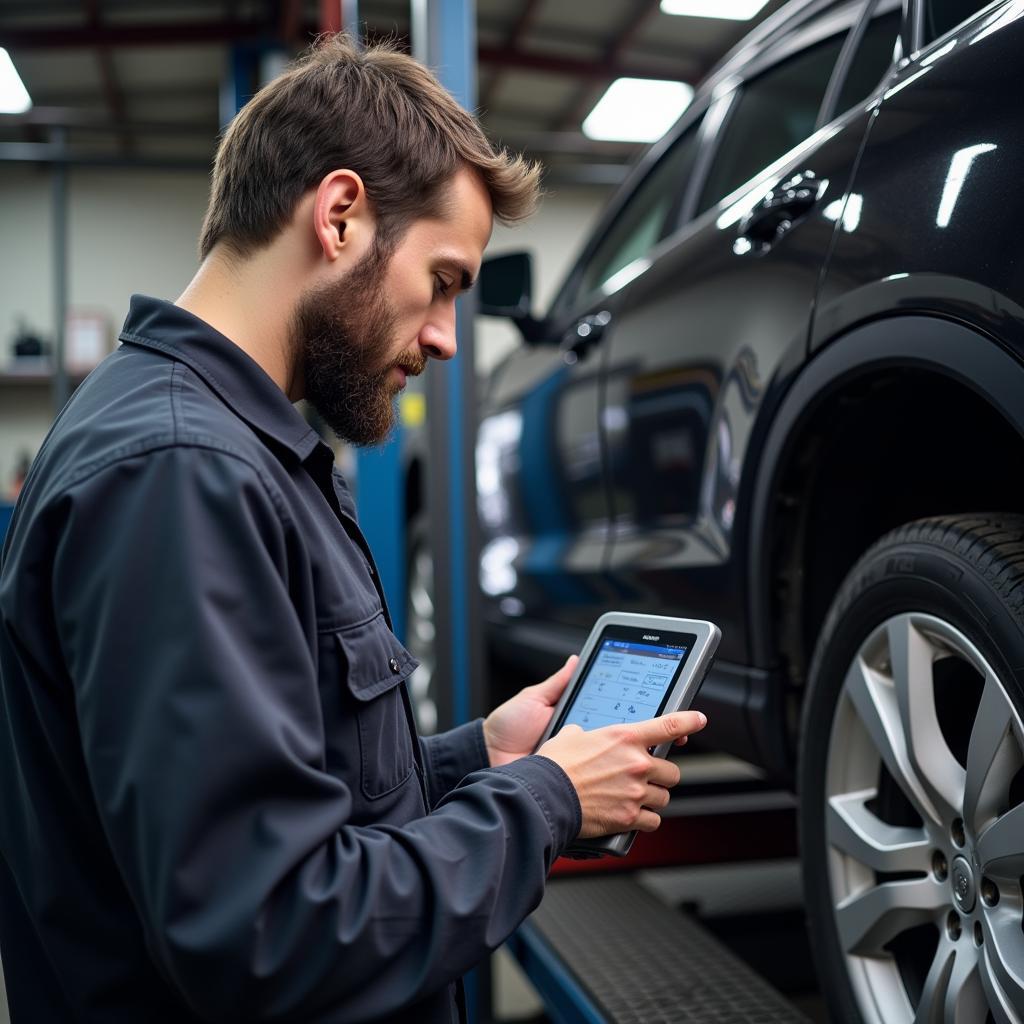In today’s digital age, you don’t need to be a mechanic to understand what’s going on under the hood. With the rise of DIY car diagnostics, getting to the root of your car troubles is easier than ever. Whether you’re facing an engine light mystery or want to stay ahead of potential issues, affordable and accessible tools can put you in the driver’s seat of your car’s health.
Why Choose DIY Car Diagnostics?
Imagine this: your check engine light flashes on, and your heart sinks. Do you:
- A: Panic and rush to the mechanic, bracing yourself for a hefty bill and an uncertain diagnosis?
- B: Grab your smartphone, connect a device to your car’s system, and potentially pinpoint the problem in minutes, all from your driveway?
DIY car diagnostics empower you to choose option B. Here’s why it’s becoming increasingly popular:
- Cost Savings: Think of the money saved on unnecessary trips to the mechanic for simple diagnoses.
- Convenience: Diagnose car problems on your own time, in your own space.
- Knowledge is Power: Understanding your car’s health gives you peace of mind and helps you make informed decisions about repairs.
What are the Best DIY Car Diagnostic Tools?
The world of DIY car diagnostics offers a tool for every need and budget. Let’s break down some popular options:
1. OBD2 Scanners (On-Board Diagnostics)
These handy devices are the cornerstone of DIY car diagnostics. They plug into your car’s OBD2 port (usually located under the dashboard) and communicate with your car’s computer.
- Basic Scanners: Read and clear basic trouble codes, giving you a general idea of what’s wrong.
- Advanced Scanners: Offer live data stream readings, allowing you to monitor engine parameters in real time. Some even provide manufacturer-specific codes for more detailed insights.
Expert Tip: “When choosing an OBD2 scanner, consider your needs and technical comfort level. A basic model is perfect for beginners, while more advanced users might prefer features like live data and ABS diagnostics,” says John Miller, Senior Automotive Engineer at AutoTech Solutions.
2. Smartphone Apps and Adapters
Your smartphone can be a powerful car diagnostic tool. By pairing a Bluetooth or Wi-Fi enabled OBD2 adapter with a dedicated app, you unlock a world of information right on your phone.
- Code Reading and Clearing: Similar to standalone scanners, these apps can read and clear trouble codes.
- Live Data Monitoring: View real-time data on engine performance, fuel efficiency, and more.
- GPS Tracking and Trip Logging: Some apps even offer additional features like vehicle location tracking and trip history.
3. Professional-Grade DIY Tools
For the more technically inclined DIYer, professional-grade diagnostic tools offer comprehensive functionality. These often require a deeper understanding of car mechanics.
- High-End Scanners: Provide advanced features like bi-directional control, allowing you to perform tests and actuate components.
- Oscilloscope: A sophisticated tool for analyzing electrical signals in your car’s system, helping diagnose complex electrical issues.
Choosing the Right Diagnostic Tool for You
With so many options available, selecting the best DIY car diagnostic tool depends on your specific needs and budget. Consider these factors:
- Your Car’s Make and Model: Some tools are compatible with a wider range of vehicles than others.
- Technical Skill Level: Opt for a user-friendly scanner or app if you’re new to car diagnostics.
- Desired Features: Determine what features are essential for your needs, such as live data streaming or ABS diagnostics.
- Budget: Prices can range from affordable OBD2 scanners to more expensive professional-grade tools.
Don’t Forget: If you’re unsure which tool is right for you, consult online reviews, forums, or experts to make an informed decision.
Common DIY Car Diagnostic Uses
Here are just a few ways DIY car diagnostics can empower you:
- Diagnose Check Engine Light: Quickly identify the source of the dreaded check engine light before heading to the mechanic.
- Monitor Car Performance: Track vital engine parameters like coolant temperature, RPM, and oxygen sensor readings.
- Assess Battery Health: Check your battery voltage and charging system to avoid unexpected breakdowns.
- Analyze Fuel Efficiency: Identify potential issues that may be impacting your car’s fuel economy.
- Inspect a Used Car Before Purchase: Gain valuable insights into a used car’s history and potential problems before making a purchase.
 Mechanic Checking Car Diagnostics
Mechanic Checking Car Diagnostics
Conclusion
DIY car diagnostics is no longer reserved for seasoned mechanics. With the right tools and a bit of research, you can unlock a deeper understanding of your car’s health, potentially save money on repairs, and enjoy the peace of mind that comes with being in control. So why wait? Take charge of your car’s well-being and explore the world of DIY car diagnostics today.
Need help choosing the right car diagnostic tool for your needs? Explore our comprehensive reviews of the best uk car diagnostic software for pc, the best car electronic diagnostic tool, and the best diagnostic tool for car to find the perfect fit for your DIY adventures.

Leave a Reply